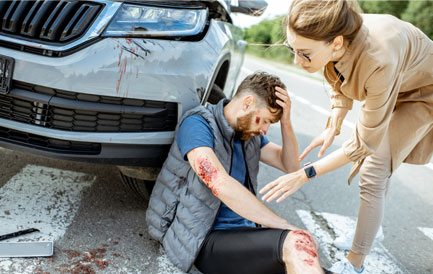4701 Oleander Drive, Suite A
Myrtle Beach, SC 29577
4701 Oleander Drive, Suite A
Myrtle Beach, SC 29577
Myrtle Beach Product Liability Lawyer
Product Liability Attorneys in Myrtle Beach, SC
If you have been hurt by an unsafe or defective product, the Myrtle Beach product liability attorneys at Axelrod & Associates are here to help you recover the maximum compensation you are entitled to under SC law.
Your product liability lawyer on the Axelrod team understands the state and federal laws that protect consumers from defective and unsafe products. We know how to investigate your product liability claim, the right experts to call, the causes of action that you will need to file, and the damages that you are entitled to.
If you have been injured by a defective product, call our product liability lawyers now to set up a free consultation to find out how we can help.

How Can A Myrtle Beach, SC Defective Product Attorney Help You?
Your SC product liability attorney on the Axelrod team will:
- Meet with you to learn what happened and to answer your questions,
- Investigate the incident and the product that caused your injuries,
- Retain the appropriate experts for consultation and testimony about how the product was defective and why it caused your injuries,
- Identify all responsible parties and sources of recovery,
- Negotiate with the at-fault parties and their insurance companies for full and fair compensation for the injuries caused by their product,
- Advise you as to whether it is in your best interests to file an individual lawsuit or a class action lawsuit,
- File a lawsuit and continue negotiating as we litigate your case, and
- Try your case to a jury when it is not settled for the full value of your claim.
FAQs About SC Products Liability Laws
If you have been hurt by an unsafe or defective product, you may have questions.
Below, we provide some general information, but you should contact a Myrtle Beach product liability lawyer immediately to discuss the specifics of your case and to find out what your options are.
What are the Different Types of Product Liability Cases?
Product liability cases can fall under one of several categories, including:
- Manufacturing defects: manufacturing defects arise when an otherwise safe product is made unsafe due to an error in the manufacturing process. For example, a bar of bath soap is generally safe, but a bar of bath soap with a piece of metal embedded in it can cause severe injury.
- Design defects: When a product’s design makes the product unreasonably dangerous, and the danger was foreseeable, there may be a product liability claim against the product’s designer and others. Design defects are even more egregious when the manufacturer knew of safer alternatives but used the defective design anyway to save money in production.
- Failure to warn: The failure to warn of potential hazards in a product can also be the basis of a product liability lawsuit. Among other things, an adequate warning label must 1) identify the hazard, 2) explain the severity of the risk involved, 3) identify the potential effects of the hazard, and 4) provide information about how to avoid the hazard.
What is Negligence in a Product Liability Case?
To prove negligence, we must show that the defendant had a duty of care to the plaintiff (for example, the duty to sell a safe product that does not cause harm or injury), the defendant breached that duty, and the breach of their duty resulted in damages suffered by the plaintiff.
In most product liability cases, we do not need to prove negligence because strict liability will apply.
What Does Strict Liability Mean in a Product Liability Case?
Strict liability applies to most product liability cases – if there is a defect in the product and it causes injury to a consumer, the manufacturer and possibly others are strictly liable, regardless of the care they took in designing and manufacturing a product.
Strict liability only applies when a product was purchased by the plaintiff from the store, and it may not apply if the product was purchased second-hand or used.
What is Breach of Warranty in a Product Liability Case?
Consumers are also protected by express and implied warranties.
Express warranties are statements made by a manufacturer or seller of a product as to the product’s use or quality.
Implied warranties are not expressly stated by the manufacturer or seller of a product, but all consumers should be able to expect that a product 1) works for its intended purpose and 2) is safe to use for its intended purpose.
When a warranty has been breached, resulting in injury to a consumer, “breach of warranty” is a claim that can be made against the responsible company.
Who is Liable for a Defective or Unsafe Product?
Depending on the facts of your case, you may be able to sue:
- The product manufacturer,
- The product’s distributor, or
- The product’s retailer (the store that sells the defective product).
When Do You File a Class Action Lawsuit for a Defective Product?
In some cases, it may be appropriate to file a class action lawsuit, where a small number of plaintiffs represent a much larger group of plaintiffs who have been injured by a defective product.
When your damages are substantial, severe, or unique, it will usually make more sense to file an individual lawsuit instead of joining a class action lawsuit.
On the other hand, when 1) the damages suffered are not substantial, 2) many people have been injured, and 3) the costs of filing an individual lawsuit do not justify the potential recovery, you may want to join a class action lawsuit.
GOT AXELROD?
If you have been injured by a defective or unsafe product, the Myrtle Beach product liability lawyers at Axelrod & Associates may be able to help you to get maximum compensation for your injuries.
Call 843-916-9300 or complete our contact form for a free initial consultation.
Need help? Contact Axelrod & Associates, P.A.

Request your
Consultation
The fields marked with * are mandatory.






